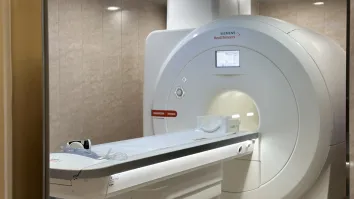
Seoul National University Cancer Hospital: At the forefront of cancer treatment in Asia
The top-tier medical center for cancer is making its own mark in the region.
If Koreans are alarmed by the country’s rising incidence of cancer – the number of Korean cancer patients doubled in the decade after 2003 – then they can breathe a sigh of relief knowing that a world-class treatment facility is right in their backyard.
The Seoul National University (SNU) Cancer Hospital, which opened in March 2011, has spent the past five years building one of the best medical services for cancer in Asia, attracting top healthcare providers (HCPs) and treating patients that fly in from all over the region.
SNU Cancer Hospital has a prestigious pedigree as part of the highly acclaimed SNU Hospital, the latter of which has pioneered medical frontiers as Korea‘s national central hospital. SNU Cancer Hospital is making its own mark in the medical world as a dedicated cancer treatment facility with 28 centers and optimized medical services.
It sets itself apart from other Asian cancer hospitals with a three-pronged advantage: A world-class cancer research program, experienced and excellent HCPs, and innovative systems to improve treatment outcome, according to Prof. Tae You Kim, a medical oncologist specialized in colorectal cancer and chairman of SNU Cancer Hospital.
As proof of its rising status, the hospital is being benchmarked by China, Japan, Kazakhstan and other countries as a model hub for cancer treatment in Asia and around the world. SNU Hospital has been tireless in its pursuit of cuttingedge treatment that delivers better outcomes in the face of increasing cancer prevalence in Korea.
National data reveals the number of cancer patients in Korea almost doubled over the past 10 years from 125,707 in 2003 to 225,343 in 2013. After 2010, more than 310 patients are newly diagnosed with cancer for every 100,000 population each year.
The cancer risk stands at 36.6% for the average Korean whose life expectancy is 81 years, which means three out of 10 Koreans will develop cancer in their life time.
In Korea, the cancer death rate is 150.9 per 100,000 population and lung cancer is the leading cause of cancer death. “It is difficult to detect lung cancer earlier and it is prone to be metastatic to other organs or blood, making treatment very challenging. Lung cancer is followed by liver cancer, gastric cancer and colorectal cancer,” says Kim.
In response to these alarming numbers, along with similar rises in cancer incidence in other countries in Asia and around the world, the SNU Cancer Hospital is transforming itself into a global research-based hospital with breakthrough research findings in developing novel drugs, including immunotherapy.
Immunotherapy may hold the key
The SNU Cancer Hospital is active across all areas of clinical research covering basic and translational research and clinical research, including 260 studies of investigational drugs at the country’s first oncology clinical trial center.
“Our hospital is also conducting many studies of the latest drugs such as immunotherapy. We are also making efforts to help patients get faster access to new drugs by shortening the time to hospital of new drugs,” says Kim.
Kim explains that SNU Cancer Hospital has keen interest in the development of new cancer treatment molecules. Although a lot of cancer drugs are available and surgical methods have improved by leaps and bounds, cancer remains a challenging task, especially with regards to tackling resistance. But the area of immunotheraphy, which SNU Cancer Hospital is focusing on, seems to hold great promise in addressing resistance.
“Recently, immunotherapy drugs are commercialized and these drugs give us hope that we will be able to overcome resistance as it uses the immune function of patients,” says Kim. SNU Hospital and its high-caliber team of HCPs are conducting clinical studies of immunotherapy among patients with head and neck cancer, breast cancer, gastric cancer and other types of cancer.
The clinical trials look to evaluate the efficacy and safety of immunotherapies in various patients, and the results should benefit patients, improving their treatment and care. “We need to continue research to find whether there are available biomarkers to identify patients who are more suitable for immunotherapy, and to understand how immunotherapy can be used in combination with other cancer agents.
SNU Cancer Hospital’s research team is actively participating in these studies,” says Kim. The hospital is conducting 32 immunotherapy clinical trials and Kim reckons more will follow. “Through these research programs, we will be making a difference with immunotherapy in the treatment of various cancer patients, including those with lung cancer, which has the highest mortality rate of any cancer. Immunotherapy will help us accelerate the era of cancer conquest,” says Kim.
Experienced and world-class HCPs
The best-laid plans fall short if there are no brilliant minds to see them through, which is why SNU Cancer Hospital hires an array of experienced and world-class HCPs. “Our HCPs who hold a wealth of clinical experience and excellent research skills,” says Kim, adding that the hospital, with its association with the top-ranked Seoul National University, manages to attract the best minds to its medical school.
HCPs also benefit from international collaborations with other leading cancer treatment facilities. SNU Cancer Hospital has signed agreements with the National Cancer Institute of the U.S. and City of Hope, a U.S. cancer hospital in areas of education, research and consultation.
In addition, the SNU Cancer Hospital’s Brain Tumor Center shares research findings with MGH, a Harvard affiliated hospital through regular video conferences. Training programs for HCPs are also actively conducted in cooperation with various countries, including the United States, China and Japan.
The FIRST Cancer Hospital in Asia
“Through the best knowledge and skills of our doctors, state-of-the-art medical systems, and world-class research & development capabilities, SNU Cancer Hospital will be your FIRST hospital in conquering cancer,” says Kim. FIRST is an acronym that stands for Friendly, Integrated, Research-based, Smart and Trustworthy – all traits that exemplify the type of service SNU Cancer Hospital strives to provide all patients.
The FIRST principle led SNU Cancer Hospital to place oncology nurses for each center, who provide information oradd necessary explanations to first visit patients. The nurses then summarize the cancer history of first visit patients in advance and deliver it to oncologists.
The hospital strives to minimize unnecessary hospitalization to reduce the wait time for admission. And patients who are injected with a cycle of less than 12 hours can get cancer treatment during the day without hospitalization. FIRST will serve as the guiding compass for the improvements the hospital will be implementing in the coming years.



















 Advertise
Advertise






